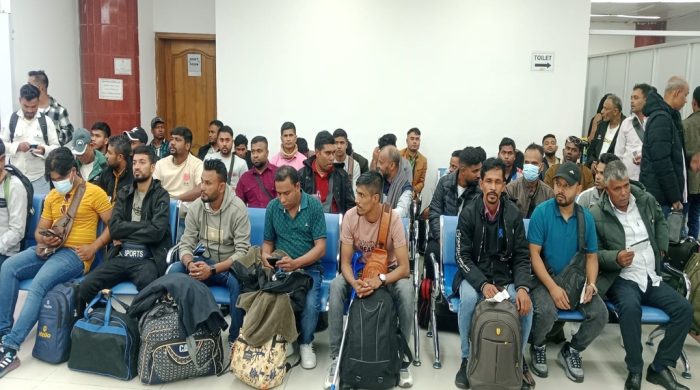Are errors in textbooks mere mistakes?

- Update Time : Saturday, January 28, 2023
- 78 Time View

Almost all common citizens of our country like me believe that Bangladesh is a Muslim majority, peaceful and non-communal country. A citizen here either Muslim or Hindu or Buddhist and Christian is usually friendly towards his next-door neighbour. There is no lack of honest neighbourly behaviour on the part of him.
The innate tendency to always stand by the neighbours in happiness and sorrow, adversity and danger is a striking feature of the Bengali character. Much of it is visible. For instance, the head of a fairly well-to-do middle-class family in the village often gathers information on ability to arrange meals of neighbouring poor families and lends a helping hand when required. It can be a handful of paddy and rice in good and bad times in a neighbour’s family’s wedding.
Again, the two neighbours consult and help each other on many issues that are not seen publicly. For example – one takes refuge with the other and says: Listen Naren/Kabir, I seek your advice on a matter. I haven’t told anyone else, I won’t. What has been going on for so many days?
There are many more such things, which will make it seem that these two are not just neighbours but siblings.
However, it is not that there are no exceptions. But it is not worth mentioning. And such communal harmony is nothing new in this land. Not because our National Poet Kazi Nazrul wrote a long time ago in one of his lyrical poems: ‘Mora Ek Brinte Duti Kusum Hindu-Muslim / Muslim Tar Nayonmoni, Hindu Tahar Pran.’
In the year of 1950, we got it as a lesson in our class five text book. Even after 72-73 years, I have not forgotten the name of the poet. But one thing is worth noting. The year was 1950, just three years after the birth of newly independent Pakistan. Islamic spirit was then running like a spark through the veins of the entire nation. What is being taught to fifth grade children? No, ‘…Hindus is his soul’! Like the present time, 90 percent of the students in the class were Muslims.
And the attempt to wrap the country with the veil of ‘Tahjib-Tammaddun’ started with the birth of baby Pakistan on August 14, 1947. Even then, communal harmony remained intact in the East Bengal (later renamed East Pakistan by the Pakistani rulers as ‘Aqeeqah’), although in neighbouring India there were occasional riots and killings of Muslims like jogging to lose weight.
However, surpassing everything, Hindu-Muslim two nations created a rare history of harmony in 1971. The Bengali-speaking states of the Hindu-dominated state of West Bengal and Tripura offered warm hospitality to around one crore East Pakistani refugees who were attacked and driven out by the Pakistani army for nine months. After that, when Bangladesh became independent, this war-torn country naturally had only problems and problems.
Food-clothes-shelter-education-health-transportation-law and order-in all spheres there was only no no, no sound. The country was reborn like a sphinx from a vast void. If there is one thing that is enough to get relief from all these problems, it is communal harmony. In that royal period or the British period, like the melodious Azan of the mosque, there was the bronze bell of the temple, even after so many storms, so much violence, bloodshed, it still exists.
The 170 million people of this country can practise their religion without interruption due to the fact that over time they have come to know that whatever their religious, political and social identities are, they all have a common identity and by which they are united. It is Bengali nationalism, which even in the face of death in 1971.
As long as the people of the land called Bangladesh are bound by this rope, then Insha Allah no evil force will be able to harm this country.
After hearing what I have said so far, some of you may be feeling ‘bored’. I am seeking apology again for that. But one humble request to all, regardless of caste and religion: Don’t let anything go to astray, don’t let the national unity that is the life force of this Bangladesh, acquired with great difficulty, bought at the price of blood (‘bought Bangla with a price, this Bangla is not someone’s donation’ – the late popular singer Abdul Latif), be destroyed by anything.
If you or me are careless, snakes can enter Behula’s house at any moment. Then we will not have time to regret. Let’s say it in simple words. You and me may not know, but they are around you. They are trying to fish in dirty waters.
If there is nothing, they try to pollute fresh water of the lake by throwing two or four pieces of bricks and stones. Let us try to clarify the matter with an example.
In a country of 90 percent Muslims, some issues were constitutionally settled long years ago. For example, nothing can be said or done to hurt the religious sentiments of any resident of this country. Not only Muslims but people of all religions are mentioned here. That means equal rights of other religions are ensured by this provision. Bangladesh is nationally and internationally known for being liberal to religions.
In fact, people of Bangladesh, whether they are Muslims, Hindu-Christian-Buddhist or others, are a little more respectful not only about their own religion, but also other religions. The people of this country believe in the principle of peaceful coexistence with regard to religion, just like the people of Europe and America.
If someone makes a comment insulting his religion or hurts his religious sentiments, he is not a man or a woman to talk to. Insulting his religion, be it direct or indirect, may cause a riot.
To tell you the truth, in a civilised society, exaggeration as to religion is far from it.
The government of a country is not only responsible for providing security to the people of that country, but it is also responsible for protecting all their fundamental rights. Religious right is certainly not only an important right but also a very touchy and sensitive issue.
Looking at the history of the world, it can be observed that many bloody wars have been fought over the ages only for religious reasons. And if you want to maintain the internal peace and order of a country, religion is definitely one of the things that you have to pay careful attention to.
Especially in a country like Bangladesh, where the majority of the masses are not only religious, but a large section of them are deeply religious. It is therefore the ‘duty’ of every responsible citizen and administrative authority to exercise extra caution in religious matters.
Recently, there has been a major deviation. It was observed that the deviation was caused by those responsible for publishing school textbooks. One of the commendable innovations of the government is the distribution of new books free of cost to the lower class students on the first day of the English calendar, for example, 1st January. Needless to say, the task of designing, publishing and distributing children’s books to billions of children across the country is a herculean task.
The relevant ministries and departments have been fulfilling their duties fairly smoothly. Despite various adversities including Covid-19 pandemic, this time too the book has reached almost everywhere on time. Expected smiles appeared on the children’s faces. But far from smiling, many teachers and parents raised their fingers of complaint with black faces. What is the issue? No, that is religious.
They say that the authorities have deliberately added or omitted such matters which hurt their religious sentiments. More precisely, the dignity of Islam has been undermined. Apart from this there are more mistakes. There is no doubt that the allegations are serious. The Hon’ble Education Minister herself intervened quickly in the matter and assured that steps will be taken to correct the error in phases as soon as possible.
Here we are not going to weigh the allegations? We will be happy if those who are supposed to fulfill their duties quickly do it? But one thing must be mentioned. It is heard that a class of officials-employees have an ‘allergy’ about Islamic culture and they are the ones who intervene whenever they get a chance.
They get promotion and posting rightly by the grace of Almighty. But the government has to face embarrassment in such a situation and tackle it somehow. I will say that the government never takes any action against those who sometimes do strange feats in the guise of self-proclaimed owners of Bengali culture, but rather gives a kind of approval to their activities. Opportunists of this class occasionally attempt to stir the waters by throwing lures into calm ponds.
Our beloved country already has many problems. If any of these groups start rocking the boat with anti-people activities, then tell me how it feels?
(The writer is a former secretary and poet)
Mkarim06@yahoo.com
Translated by Md Akhlak Hossain
Edited by Firoz Al Mamun

























